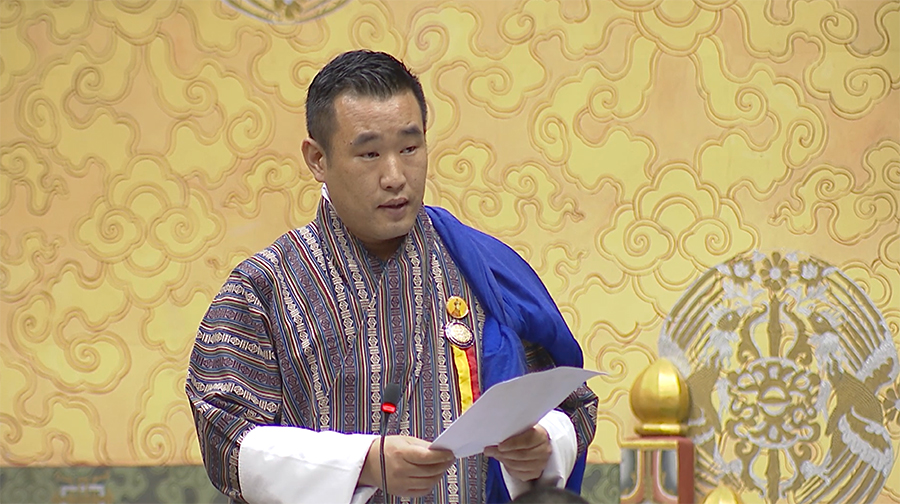 Individuals convicted of spreading and distributing explicit and harmful digital content online could face serious consequences. In the National Assembly today, Lamgong-Wangchang MP moved the motion for zero-tolerance approach to unethical, pornographic, and violent content online. The MP stated that such content endangers Bhutan’s cultural values, social harmony, and the well-being of young people. The National Assembly unanimously passed the motion today.
Individuals convicted of spreading and distributing explicit and harmful digital content online could face serious consequences. In the National Assembly today, Lamgong-Wangchang MP moved the motion for zero-tolerance approach to unethical, pornographic, and violent content online. The MP stated that such content endangers Bhutan’s cultural values, social harmony, and the well-being of young people. The National Assembly unanimously passed the motion today.
The motion was presented, recommending the House direct the government to immediately enforce a zero-tolerance policy on pornographic, violent, and unethical content across all media platforms.
It proposes amendments, wherever necessary, to the Bhutan Information, Communications and Media Act 2018 to strengthen BICMA’s enforcement capacity and initiate a nationwide digital ethics and compliance campaign.
The motion also called for all government agencies and law enforcement to work together and remain vigilant in preventing any media content that promotes division or threatens Bhutan’s unity, peace, and harmony.
Lamgong-Wangchang MP Sonam Tashi said, “With the advancement of digitalisation, social media, and streaming platforms, the spread of pornographic, violent, discriminatory, and unethical content is on the rise. This trend poses a threat to the country’s cultural values and is hurting the harmony of both youth and communities.”
Sections 2.4.3 and 2.4.4 of the Bhutan InfoComm and Media Authority’s 2019 Content Rules and Regulations ban sexually explicit content like pornography, nudity, kissing, and physical intimacy, as well as violent scenes showing dismemberment and bloody wounds. Moreover, it states that anyone who breaks these rules will be dealt with in accordance with the country’s laws. However, implementing these rules remains a challenge.
Meanwhile, the majority of the MPs supported the motion calling for strict action against such harmful conduct online.
South-Thimphu MP Tshewang Rinzin said, “As a former civil servant, I served as a board member of BICMA. From my experience, BICMA faces challenges due to inadequate human resources. Furthermore, although there are many existing rules, they are not being implemented effectively. Therefore, if the House can support the recommendation and help strengthen the implementation of these rules and enhance human resources, it would be beneficial.”
Education and Skills Development Minister Yeezang De Thapa said, “Such harmful content poses serious risks to our students. Increasingly, we are seeing cases of online sexual abuse and blackmail, with students as primary victims. This has led to growing concerns over their mental health.”
“Pornographic content is currently accessible from anywhere in our country. With a population of just around 700,000, we must act decisively. This issue can be tackled through GovTech interventions by preventing it at the source,” said Loday Tsheten, MP, Gangzur-Minjey, Lhuentse.
“Everyone has equal rights and freedom. Therefore, one should not violate others’ rights and freedom in the name of exercising their own. Spreading false, unethical, or harmful content that infringes others’ rights is, in effect, taking those rights away. This leads to disharmony and creates problems in society,” said Kuenga, MP, Nyisho-Saephu, Wangdue Phodrang.
The Speaker directed the government to take immediate action on the matter and present its progress in the winter parliament session.
Kinzang Lhadon & Namgay Dema
Edited by Phub Gyem








